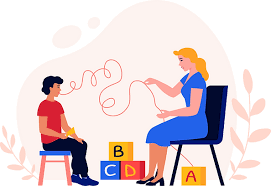The Healing Power of Humor: How Laughter Therapy Can Boost Mental Health

We’ve all heard that laughter is the best medicine, and science agrees. Humor therapy, also known as laughter therapy, uses the power of humor and positive emotions to improve both mental and physical health. It’s more than just telling jokes or watching a funny movie; it’s about intentionally using laughter to enhance mood, reduce stress, and strengthen emotional resilience.
In today’s fast-paced and stressful world, laughter provides a natural antidote to tension. When we laugh, our body releases endorphins, the brain’s feel-good chemicals, which help reduce pain and promote a sense of happiness. Humor therapy can be especially beneficial for those dealing with anxiety, depression, or chronic stress.
What Is Humor Therapy?
Humor therapy involves using laughter to promote psychological and emotional well-being. It can take many forms — watching comedies, participating in laughter yoga, engaging in group humor sessions, or incorporating playful activities into daily life.
The goal isn’t to dismiss or ignore problems but to reframe them in a way that feels lighter and more manageable. By shifting perspective, individuals can reduce the emotional weight of stress and approach life’s challenges with more optimism.
The Science Behind Humor and Mental Health
Laughter has a measurable impact on the body’s stress response. It decreases cortisol levels (the stress hormone), relaxes muscles, and stimulates circulation — all of which contribute to an improved mood and a calmer mind.
Moreover, laughter activates several regions of the brain, including those associated with emotional regulation and social bonding. This explains why laughing with others often strengthens relationships and creates a sense of connection.
Research also suggests that humor can improve cognitive function by increasing oxygen flow to the brain and enhancing alertness. When used in therapy, it encourages clients to open up, discuss difficult topics more freely, and build trust with their therapists.
Practical Ways to Use Humor for Better Mental Health
-
Start a Humor Journal: Write down funny moments or jokes that make you laugh. Reading them later can instantly lift your spirits.
-
Watch or Listen to Comedy: Whether it’s stand-up comedy, lighthearted movies, or funny podcasts, laughter can reset your mood.
-
Engage in Social Laughter: Spend time with people who make you smile. Shared laughter deepens social bonds and combats loneliness.
-
Try Laughter Yoga: This combines laughter exercises with breathing techniques to improve emotional balance and physical relaxation.
-
Bring Humor into Therapy: Many therapists incorporate humor to help patients process emotions more easily and reduce tension in sessions.
Why Humor Therapy Works
Laughter doesn’t just lighten your mental load; it promotes lasting physiological changes. It boosts immune function, enhances mood regulation, and improves pain tolerance. When you laugh, your body enters a relaxed state that can last for up to 45 minutes afterward.
Therapists and psychiatrists in Florida often encourage patients to integrate humor therapy alongside traditional treatments, such as medication or talk therapy. This holistic approach helps improve emotional resilience, making it easier to handle life’s challenges with a more positive outlook.
Final Thoughts
Humor therapy is a gentle yet powerful reminder that healing doesn’t always have to be serious. Laughter helps us reconnect with joy, relieve emotional tension, and find comfort even in difficult times. By incorporating humor into your daily routine or therapy sessions, you can take an important step toward better mental health and overall well-being.





